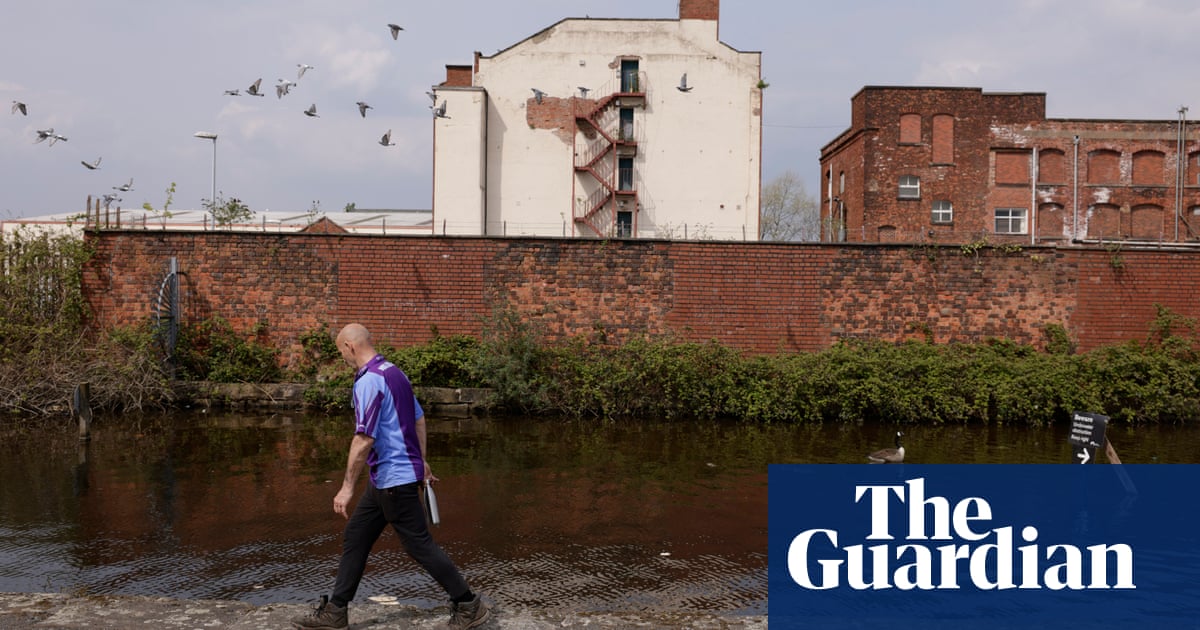
Endemic ill-health in England’s “left behind” neighbourhoods costs the country almost £30bn a year because people are often too ill to work and die earlier, a report claims.
The cost of lost productivity results directly from those very deprived areas having much worse health than the rest of the country, according to parliamentarians and academics.
Experts from the Northern Health Science Alliance (NHSA) have calculated that the economy would grow by that amount if health in those areas was improved to such an extent that local people began to enjoy the same health as those in better-off places.
Thursday’s report, by the NHSA and all-party parliamentary group for left behind neighbourhoods (LBNs), highlights the scale of the challenge Boris Johnson faces in meeting his pledge to level up England’s poorest and richest areas.
“The health of people living in left behind neighbourhoods is considerably worse than the health of people living in the rest of the country,” said Dr Luke Munford, the report’s lead author and a lecturer in health economics at the University of Manchester. “This is true across all measures of health.”
The report shows rates of obesity, lung conditions, high blood pressure, mental health problems and other diseases are much higher than the national average in the 225 LBNs. This means people there have less “healthy life expectancy” and also shorter lives and thus are less productive over their lifespan than those elsewhere.
For example, men in the poorest areas die on average 3.7 years earlier than their counterparts in the rest of England while women live three years fewer.
Both sexes in those regions also typically live 7.5 years less in good health – free of disease and disability – than those in better-off places, which also limits their ability to work, while 9.1% of people say their health is “bad” or “very bad” compared with 5.5% in England as a whole.
Despite that, people in LBNs work the longest hours in England, the authors found. They spend an average of 36.9 hours a week working, a little more than those elsewhere. However, they earn less and are sometimes in areas of high unemployment, which can depress wages, the report said.
Sajid Javid, the health secretary, has described the stark disparities in health as “the disease of disparity” and pledged to make tackling them a key element of the government’s levelling up strategy. However, publication of a white paper setting out the detail of how levelling-up would be achieved by the time of the next general election in 2024 was delayed last year and is due soon.
The 225 places have been identified as left behind neighbourhoods by combining data from the Community Needs Index with that from the Index of Multiple Deprivation. They have poor physical and digital connectivity, low community engagement and a lack of community spaces, as well as high levels of social and economic deprivation. They are mainly post-industrial areas of the Midlands and north of England as well as coastal towns.
The co-chairs of the group are Paul Howell, the Conservative MP for Sedgefield in Durham – Tony Blair’s old seat, and Dame Diana Johnson, the Labour MP for Kingston upon Hull.
The researchers found that people in LBNs have much lower gross added value – a measure of productivity – than those elsewhere. That and other factors, such as poorer educational attainment, mean that the £20,400 they earned on average in 2018 was £8,256 less than the rest of England.
Given that just over 15 million people live in the 225 LBNs, the total loss of productivity relative to the rest of the country is £124.1bn a year, the academics calculated. The 23.8% of that sum that can be directly explained by worse outcomes in local council areas containing at least one LBN equates to £29.8bn.
“It is unacceptable that those living in the poorest areas of the country can expect to die more than a decade earlier than those in wealthier areas,” said David Finch, the assistant director of healthy lives at the Health Foundation thinktank.
“Only 47% of people with a health condition or disability that limits their ability to work are in employment, compared with 81% of those without. And areas with high levels of income deprivation have greater concentrations of poor health. For example, in Hartlepool in the north-east, 21% of working-age people have a work limiting disability compared to 11% in Hillingdon in London,” Finch added.
He urged ministers to use a “whole government approach”, in which every department plays its part in reducing health inequalities if they hoped to succeed. That would involve helping low-income families to cope with the rising cost of living and ensuring that long-term investment in infrastructure is designed to promote good health, he added. “Without this, levelling up is likely to remain little more than a slogan.”
David Buck, an expert in health inequalities at the King’s Fund, said: “What is really needed is a much longer term and strategic look at how government finance reaches areas of the greatest need over time as a matter of course, not a beauty contest; how high-quality businesses are attracted to these areas and stick there; and how social infrastructure is valued and boosted and is not seen as a cost on the public purse but a long-term investment in people’s health and in their productivity.”
The Department of Health and Social Care has been approached for comment.
Source: Guardian






